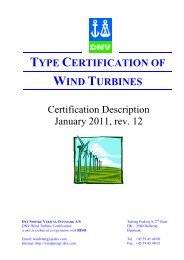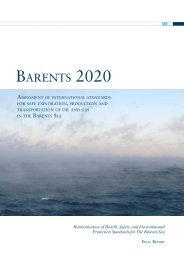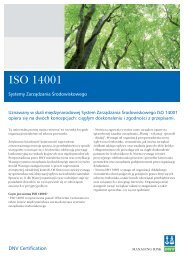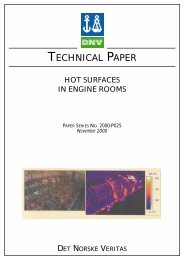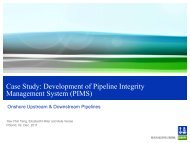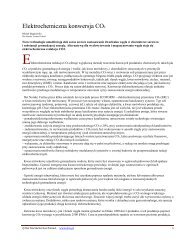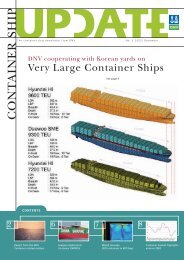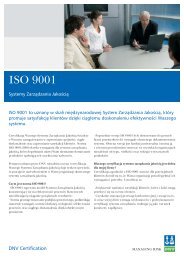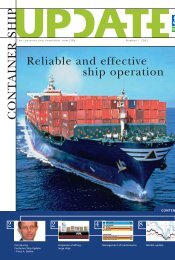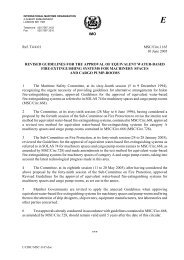phase 4 report - DNV
phase 4 report - DNV
phase 4 report - DNV
Create successful ePaper yourself
Turn your PDF publications into a flip-book with our unique Google optimized e-Paper software.
RN03: RISK MANAGEMENT OF MAJOR HAZARDS RELATED TO OFFSHORE ACTIVITIES IN ARCTIC AREAS // IntroductionBarents 2020RN03: RISK MANAGEMENT OF MAJORHAZARDS RELATED TO OFFSHOREACTIVITIES IN ARCTIC AREAS1. IntroductionThe purpose of the Barents 2020 project for Phase1-3 has been to recommend HSE standards forcommon Norwegian - Russian application in theBarents Sea, for safeguarding people, environmentand asset values in connection with oil and gasactivities, including sea transportation of oil andgas. The underlying assumption is that petroleumoperations in the Barents Sea shall be at least as safeas those in the North Sea.Phase 1 of the project lasted from October2007 to October 2008. The results of <strong>phase</strong> 1 weredocumented in 5 “Position Papers”. The positionpapers provided the basis for further work in <strong>phase</strong>2, lasting from November 2008 to March 2009,resulting in the special topics prioritised for furtherstudy in expert working groups in <strong>phase</strong> 3. Thescope of the working group RN03 for <strong>phase</strong> 3 was toidentify need for change, if any, in existing offshoreoil and gas standards related to risk management ofmajor hazards for operations in the Barents Sea.The result of the work after completion of <strong>phase</strong> 3working groups was:• Common agreed references to recognisedinternational standards which maybe used in the Barents Sea;• Harmonised comments to standardsand practices which need to be reviseddue to Barents Sea challenges;• Proposals for revisions and amendmentsto key industry standards;• Suggestions for any amendments to nationaland international regulations to allowfor the application of industry standardsproposed by the working groups; and• Identification of research and development needsin areas where current knowledge is insufficient.The <strong>phase</strong> 4 projects of Barents 2020 addressrecommendations from the <strong>phase</strong> 3 <strong>report</strong>, andin this <strong>phase</strong> the project has shifted focus fromfunctional standards to detailed industry guidelines.However, for RN03 the scope defined by the Barents2020 steering committee has been do prepare anddeliver two seminars on risk assessment and riskmanagement. Our group has hence not in this <strong>phase</strong>had a task to work with updates or amendments tostandards or guidelines.This <strong>report</strong> presents the contents and results fromthe risk management seminar which was held inMoscow 12.12.2011.The risk assessment seminar was held in Moscow07.12.2010, and the material from the seminar wasmade available as a download from Internet.Focus for this <strong>phase</strong> has continued to be on theBarents Sea, but pan arctic in scope, e.g. ice loads onfloaters, risk assessment and risk management in coldclimate, EER in cold climate, working environmentand human factors, ice management, and emissionsand discharges from ships and offshore units.Phase 4 has involved international operators andOGP to capture the best arctic competence.Project results may be freely used by operators,regulators, standardisation organisations, a. o.2. Scope of work forRN03 in <strong>phase</strong> 4The scope of work for RN03 in Phase 4 has been:Task 1 – Outline and plan two risk managementseminarsTask 2 – Prepare and carry out risk assessmentseminar in arctic conditions/ workshop with focuson:• experience exchange• comparative analysis of efficiencyof methods and software• required databases to increasesafety of offshore operations• practical application of risk assessment inthe design process for offshore activitiesReport no 2012-0690 111


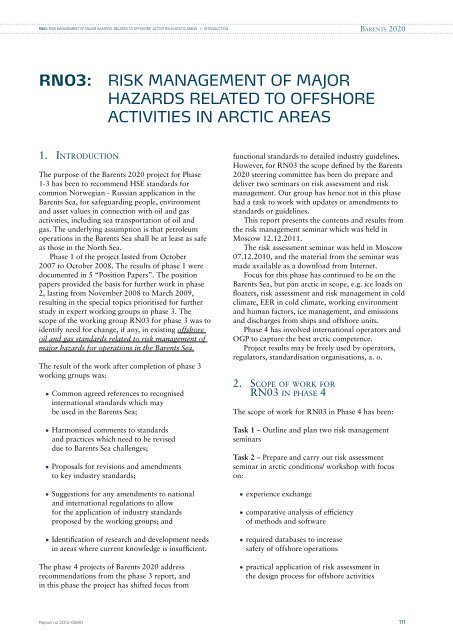
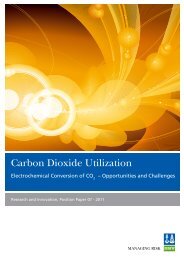
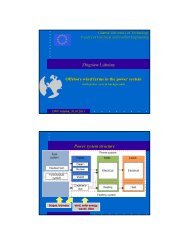
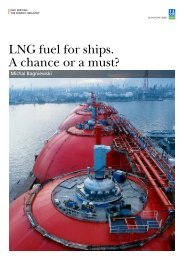
![Risk Based Pipeline Integrity Management [Compatibility Mode] - DNV](https://img.yumpu.com/50424229/1/190x146/risk-based-pipeline-integrity-management-compatibility-mode-dnv.jpg?quality=85)
